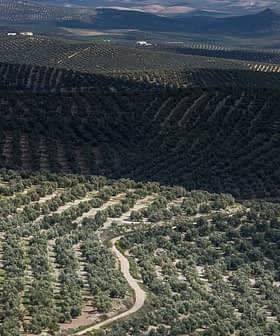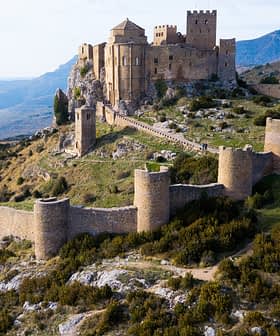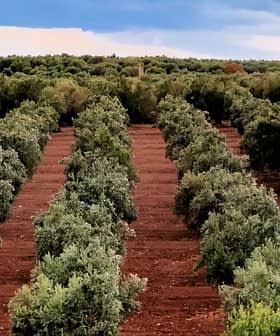'No Financial Difficulties' For Spanish Olive Oil Giant Hojiblanca, CEO Says
Spain’s Hojiblanca group plans to double its turnover in the next five years, increasing from €450 million to as much as €1 billion through increased sales of ‘home brand’ olive oil and exports to the U.S., Brazil, Mexico, and China. The company is also looking to expand into packaging and refinery operations, diversify into livestock, and increase its presence in foreign markets such as the USA, Brazil, and China. Despite facing challenges from competitors and provincial mindsets in Spain, Hojiblanca is focused on growth and increasing its market share in the olive oil industry.
It’s already the world’s biggest producer of olive oil but five years from now, Spain’s Hojiblanca group plans to have increased its turnover from last year’s €450 million ($627m) to as much as €1 billion ($1.38b).
Increased sales of ‘home brand’ olive oil — through its Mercaóleo joint venture with North American agri-business giant Cargill — is earmarked as one source of growth and, hopefully, increased exports to the U.S. and other countries including Brazil, Mexico and China.
In an interview published recently in Spain’s El Economista, Antonio Luque, former farmer and now Hojiblanca’s managing director, vowed to “keep on growing.”
“I think it’s essential that in 3 – 5 years we achieve turnover in the realm of half to one billion euros, which we see as the size necessary to guarantee an adequate return for our members and for positioning in the national and export markets.”
With Spain’s economic crisis and olive oil prices below production cost notwithstanding, the Málaga-based group “has no financial difficulties, we could even consider new transactions of up €20 – 30 million with no problems,” Luque said.

Mergers and Acquisitions
In terms of possible fusions or new assets in the olive oil sector, the group would be most interested in packaging or refinery operations. And he “could not rule out” further deals with Deóleo (the former SOS Corporation and owner of the Carbonell, Bertolli, Carapelli brands), which in July sold its 99.93 percent stake in table olive producer and packer Acyco to Hojiblanca for €13 million.
Last month Hojiblanca also diversified into livestock through its fusion with fellow Andalusian agricultural leader, Agropecuaria del Sur. And in February it bought the Fedeoliva packaging plant, in Jaén, for €2.95 million.
Foreign Markets
Hojiblanca already has offices in China and Brazil and trades in 60 countries, exporting 40 percent of its production. Luque said it was carefully considering a medium-term strategy to increase its exports to the USA. It was easier to achieve sales growth in Brazil, since the distribution side was not as concentrated as Spain’s. “Mexico is also key as it is our main overseas market for bottled olive oil.” As for China, “When the time comes, we’ll have to consider whether to do packaging there, given it is much cheaper than here, for various reasons.”
‘White Label’ Products
Sales of supermarkets’ own-brand olive oil have seen spectacular growth in Spain and are really hurting big name brands, including the Hojiblanca brand, Luque told El Economista. “Practically two out of every three bottles sold in Spain are store brand.” In contrast, only a third of Hojiblanca’s turnover currently comes from such products and the rest from its own brands, but it plans to increase production of the former in Spain. Hojiblanca had little expertise in store brand production, which is why it joined with Cargill to form Mercaóleo, he said.
However, “we’re going beyond the store brand, not just in the Spanish market but ultimately also in wider Europe and, hopefully, the U.S.. The situation is basically that we can keep selling (olive oil) in bulk to those who then package and sell it as their own brand, or we can gain more margin by doing the packaging ourselves in partnership with Cargill.”
Mediterranean Competitors & Portugal’s Position
One of Hojiblanca’s main rivals is the Portuguese agri-business group Sovena, which in 2009 replaced it as the supplier of home brand olive oil in Spain for supermarket chain Mercadona.
Asked if the growing strength of other Mediterranaen producer countries was a threat or an opportunity, Luque said it underlined the need for Spain to work “from the farmer to the factory” to reduce costs, because it was up against countries that were more competitive. Among them, Portugal had grown the most, in both volume and competitive advantage, however there had been a lot of Spanish investment there, he said. Nevertheless, it was in Spain that production, and growth, remained highest.
Problems with Provincial Mindsets
Luque spoke frankly of his frustration with barriers to structural changes on the production side in Spain. “We still have more than a thousand co-ops selling olive oil independently but they are up against just five companies that buy 60 percent of all the olive oil sold worldwide. If we formed a bigger group the market dynamics would change and we could get a better price.”
“In Andalusia we are one of 800 companies selling olive oil. Could all 800 of us go to Beijing to sell it?”
“The global price reference for olive oil depends on production in Spain, essentially in Andalusia.” If there were just two or three companies there each handling 800 – 900 million tons of oil then they could negotiate higher prices, Luque said.
Instead, there was a lack of transparency and unwillingness to transcend local interests (to improve the health of the sector as a whole) among the management in some co-ops.
“Often, what impedes integration (of co-ops) is not the law but the parochialism and personal interests of the people running them,” Luque said.









